If you are ready to add a Chief Human Resources Officer (CHRO) to your executive team, congratulations. You are serious about building and nurturing a world-class workforce that can take your business to the next level. However, I would be the first to admit that developing interview questions to ask CHRO candidates is challenging. The CHRO is a multi-faceted strategic role, so you must tailor the interview process to your environment.
As a fractional CHRO, I sometimes craft interview questions for CHRO candidates when my clients are ready to graduate from my services and hire someone full-time. So below, I provide insight into my thought process and a list of customizable questions to get you started.
Qualities to Look for in a CHRO
A Chief Human Resources Officer (aka Chief People Officer or Chief Talent Officer) is a functional business leader who partners with your executive staff to shape and influence strategies to achieve your vision. Then, they guide your HR team in developing the processes, systems, and talent necessary to fulfill your short and long-term goals.
Given the scope and visibility of the role, all CHRO candidates should possess functional expertise and solid credentials. For instance, HR leaders typically have collaboration, negotiation, critical thinking, mediation, and communication skills. They should also demonstrate strong business and financial acumen and experience in organizational development and strategic leadership. And finally, most will hold an MBA (with a concentration in HR) or relevant certifications such as SPHR, PHR, or coaching certifications.
However, these are simply the basic qualifications. The role’s requirements can vary drastically, depending on your industry and the state of your organization. For example, consider the following types of companies and how their teams, processes, cultures, and human capital requirements might differ:
- A large publicly traded technology company with plans to expand its global presence through mergers and acquisitions.
- A mid-sized, private equity-funded manufacturing firm that serves U.S.-based auto manufacturers.
- A family-run advertising agency that pairs consultants with clients in the dental industry.
As you might imagine, the ideal HR professional for each company will be very different. For example, the CHRO at the technology company might be 100% focused on strategy, whereas the ad agency may need a CHRO who is not just a strategist but a doer.
So, consider your environment and plans for the next 3-5 years. Then, use the questions below to get ideas for developing a customized set of chief people officer interview queries that will empower you to vet candidates through that lens.
CHRO Interview Questions
CHROs report to the CEO, collaborate with other executives to mold business strategy, and deliver critical information to your Board of Directors and other stakeholders. So, executive involvement in the interview process is imperative. Although an HR director may perform the initial screening and provide feedback, they will only scratch the surface. It is up to your executives to drill deep into the candidate’s abilities and suitability with questions like the following.
Warm-Up Interview Questions
- I see that you worked for one of our competitors. What do you know about our organization and how our work environment differs from theirs?
- What was the structure of the HR function within your last company? How did that affect your day-to-day responsibilities and enjoyment of that job?
- Why are you looking for a new opportunity?
These questions are relatively straightforward. They will help you get to know each other and find a comfortable rhythm for the interview while providing early insight into the candidate’s experience.
CHRO Interview Questions About Industry, Environment, or Special Skills
Once you are past introductions, it is time to dig deeper. First, describe an HR challenge you are facing and ask the candidate to explain how they would deal with it in detail. Then listen carefully and ask follow-up questions to understand how this person thinks and would behave if they were navigating the situation for your company.
Human Resource Infrastructure 360°™
Don’t let costly human resource issues creep up on you. Learn about the 5 components of HR Infrastructure 360°™ - our proprietary framework for building and supporting your team.
The candidate’s answers should certainly show their knowledge of the subject. But this role is not theoretical, so look for how they tie that knowledge to their background, ideally with stories about how they handled similar issues so you can mine their experience.
In items 4-13 below, I present questions to ask a Chief Human Resource Officer that would only suit certain companies and situations. Pick one or two that are relevant to you or use them as inspiration to develop your own questions.
Administrative and Infrastructure Issues
- We have been thinking about working with a Professional Employer Organization (PEO). What do you think about PEOs, and how would you find the right one for our company?
- One of our executives wants to implement an unlimited PTO policy. How would you approach a suggestion of this sort? What questions would you ask, and how would you go about rolling such a policy out if we decided to move forward
Questions of this nature will provide insight into the candidate’s business sense and ability to work with other executives. Ideally, they will want to know why the company would like to implement this policy and will suggest exploring the impact from multiple angles. For instance, what will it cost, what message would the policy send about the organization’s culture, how would you train managers to handle it, and will it conflict with industry and regional regulations?
- We are ready to select and implement a Human Resource Management System. How would you choose the right solution and roll it out for our organization?
- What systems have you used in the past, and why did you choose them?
- How did you develop and implement training programs to ease the rollout?
- What infrastructure did you create to empower the organization to collect and analyze the resulting data?
Navigating Change and Driving Efficiencies

- Our organization wishes to establish a foothold in another country, and we understand that you have helped other companies with similar initiatives.
- What would you recommend we do to set up operations?
- What regions should we look at and why?
- What regulations or employment laws will we need to consider?
- How can we drive efficiencies by repurposing existing resources?
- What might we need to implement that doesn’t already exist?
- The CHRO we hire will need to build an HR department from scratch. Tell me about a time when you have done that. For instance:
- How did you develop a talent acquisition strategy while minding your budget?
- What roles did you seek to fill?
- Who was your first hire?
- How did you develop a supportive environment that encouraged employee engagement?
- What was your plan of attack?
- We plan to grow through mergers and acquisitions, and your resume suggests that you have experience in this area. How did you manage that process from a people perspective?
- How did you determine a strategy?
- What components were involved, and how did you roll it out?
- How did you handle the due diligence and integration process?
- What adjustments did you make to your training and development programs to accommodate the change?
- What worked, what didn’t, and what could you have done differently?
- How would you help us with a specific acquisition we have in mind?
- We want to sell our company in the next 3 to 5 years and understand that you have helped organizations like ours navigate that process.
- What do you suggest we consider regarding compliance, process efficiency, and building a team to manage this transition?
- How would you suggest hiring managers discuss this concept with potential employees?
- What steps do we need to take to prepare now, and what can we put off?

Molding the Company Culture
- It has come to our attention that our company is rather homogeneous. That was never our intention, and we want to change. How would you approach this challenge?
- What initiatives would you suggest we implement to encourage diversity and inclusion when hiring, developing succession plans, and forming management practices?
- What strategies have you tried in the past?
- What did you learn from the success or failure of those strategies?
- How did that experience influence your approach to building high-performing teams?
- We are experiencing an employee retention problem. We suspect it has something to do with our cultural norms and values due to some comments we have seen on social media. Given what you know about our company and industry, how would you diagnose this problem’s cause and lead us through a cultural transformation if we deem it necessary?
In answering this question, the ideal candidate might question your assumptions about the cause of your employee retention issues and recommend that you look at every stage of the talent life cycle. Then, they should be able to describe what that means and the steps they have taken to address similar issues.
- In the interest of transparency, we want to develop and document a compensation strategy that aligns with our desired culture, values, and hiring needs (while protecting our budget).
- How would you create a compensation strategy, step-by-step?
- What compensation philosophy might suit our environment?
- How would you balance monetary and non-monetary rewards?
- What changes would you need to make to our current infrastructure to accommodate your plans, and how would you go about doing that?
- How would you track the results?
Questions to Ask a CHRO to Explore Cultural Fit
In addition to clarifying your candidate’s experience, you must ensure they will work well with your team and be content in the role. Use the following questions to explore their personalities, aspirations, and whether they will fit in.
- What was the CEO like at your last company? How did they work with the executive team, and how did that team make decisions? What did you enjoy about that, and what could have been better?
- Tell me about a time when you found yourself in disagreement with another member of the executive team. What was the issue, and how did you go about resolving it?
- How would you describe your management style? What difficulties do you believe you will face, given what you know about our environment and culture?
- What have your experiences with different organizations taught you about the environments you like working in and creating? What challenges are you interested in taking on as you move forward in your career?
Chief Human Resources Officer Interview Questions: The Bottom Line
It isn’t easy to craft questions to ask CHRO candidates because you must carefully tailor them to your company and industry. However, this skill applies to many other roles, so learning to do it properly is worth it. The trick is to think about what is in store for your organization in the next few years, then ask your candidate what they would do to help you move forward. If you need assistance with this process or want to outsource your CHRO needs, we welcome you to explore our fractional human resources services.




